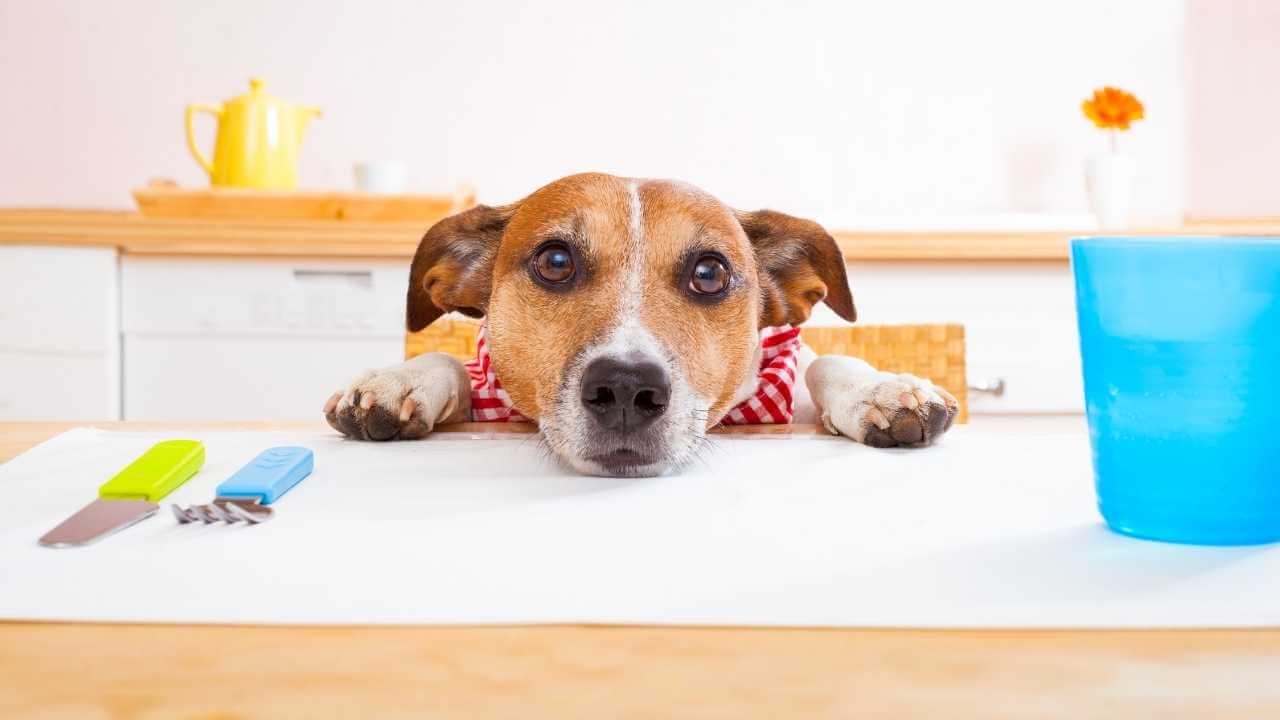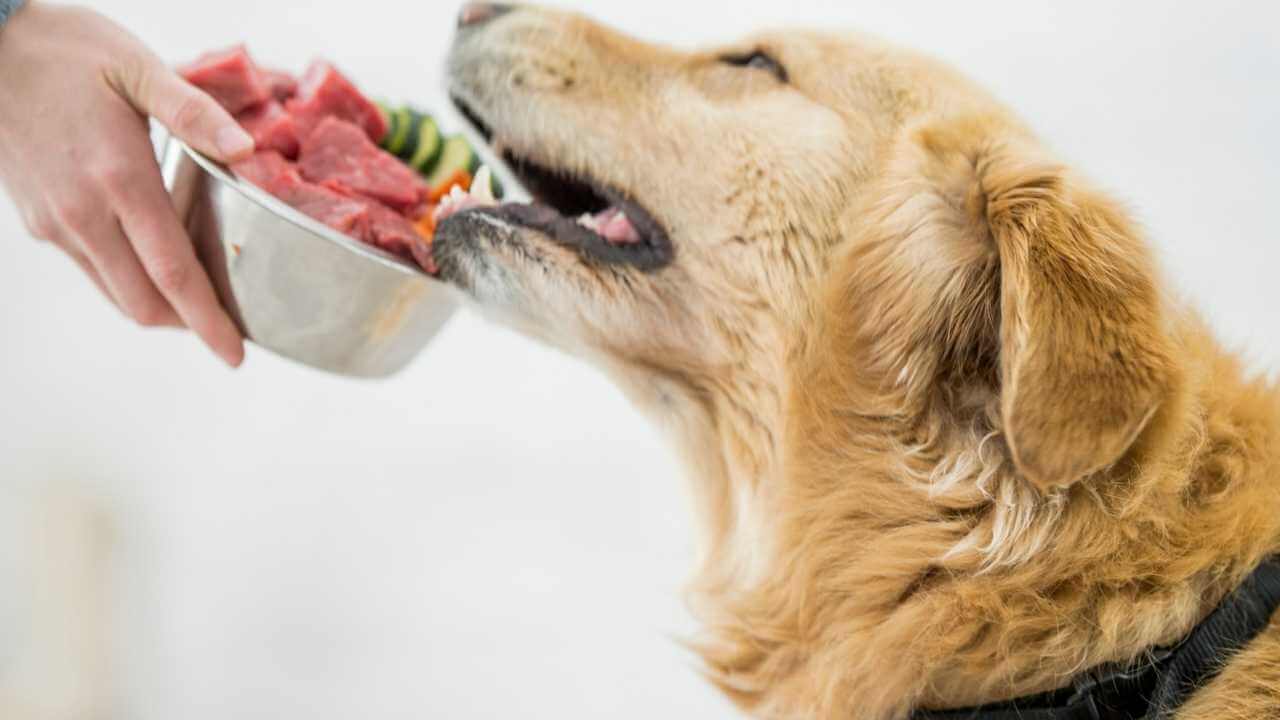Should you feed your dog raw meat?
Should I feed my dog raw meat?
This is a question I get a lot however the answer is not always that straight forward. Every dog is different and so without knowing the dog’s full history, my answer is simply “I don’t know, so please tell me more.”

However, let me answer generically in relation to dogs as a whole species!
Our canine companions have changed a lot over time through natural evolution and human interference with selective breeding via pairing or artificial insemination but even now dog’s are still biologically equipped from nose to tail for eating other animals. They are facultative carnivores which means they need to eat other animals to survive just like their wild cousins such as foxes, dingoes, coyotes and of course the Wolf. In the wild you’d label these animals as prey! Makes sense right? There’s one fundamental difference between our domesticated dogs to their cousin the Wolf and that is that they have evolved (by force) to digest some starch by producing amylase in their pancreas, not a lot but enough. This isn’t a nutritional need though, dogs do not need starch to survive their bodies have just adapted to digest it as starch has been in their diets via table scraps and more recently, the commercialised dry foods which are on average 40% starch.

Let’s start with their mouth
• Teeth: You’ll notice that your dogs teeth are very similar to wolves, they’re designed to tear through flesh and crunch bones.
• Saliva: Their saliva contains an enzyme called Lysozyme, this enzyme is there to kill bacteria such as salmonella, E-coli etc that they may come into contact with, this is an important factor as to why you’ll see dogs licking their wounds.
Lets go further down, Their stomach
• Stomach: Their stomach acidity is most optimal at a ph of 1-2. This is ideal for killing any remaining pathogens the Lysozyme didn’t kill, it’s also perfect for breaking down bones
Further along!
• Pancreas: The pancreas is in charge of producing the necessary enzymes to break down the nutrients, Protease for Protein and Lipase for fats. A dog’s primary energy source comes from fats, raw fats being superior for energy, however the dog’s pancreas can produce amylase to help breakdown carbohydrates, Carbohydrates are a dog’s secondary fuel source!
• Liver and Kidney: A dog’s liver and kidney also produce important enzymes.
These enzymes produce more efficiently with a diets that’s sufficient in moisture because when the intake of protein is higher the kidneys, for example, soon become overloaded as they struggle to filter through with a diet that’s zero-low moisture. This can cause chronic inflammation and even renal failure over time, initially an increase of proteins will be found in the blood and urine.
• Intestines(Gut): These guys often get overlooked but they are a crucial part of keeping the body healthy. They are like the central hub of the body, if these aren’t functioning correctly then you’ll soon see signs, commonly dermatological issues, vomiting and/or diarrhea. The most common issue these days with the gut being upset is due to chronic inflammation, leading to leaky gut syndrome which causes variable immune responses along malabsorption of nutrients which leads to deficiencies! The inflammation is caused by several factors, singular or in combination but ultimately they cause an imbalance to the microbiome which is responsible for all bodily functions!
Now we’ve taken a look into the very basic digestive system of a dog, it’s clear to see that they are designed to eat raw meat, but does that mean that they should?
Well, that lovely reader, is entirely up to you. Now you have the anatomical information, it’s down to you to make an informed decision. It’s your dog and you have to do what’s comfortable for you regarding feeding but if you want to feed fresh foods but don’t know where to start then simply contact us here at The Pet Parlour. We’ll be happy to assist you!

My View
In my view the most important factor in feeding your dogs a species appropriate fresh food diet, is to include a mixture of various Meats + Fats, Bones, Organs, Low GI/Non Starch based vegetables, Herbs, Spices and Seed (Including oils of) even fur & feathers (if you can) which together provide an abundance of essential nutrients dogs need to thrive! As we repeat on a regular basis here, Variety is key!
We see the positive effects the switch from starchy based processed foods, to a fresh, species appropriate raw food diet has on dogs on a daily basis here at The Pet Parlour and while the switch may initially seem daunting, we will guide you through the transition process step by step. Almost all those who do switch are extremely happy with the results, often showing positives within a matter of days! So don’t hesitate in calling us for reliable & friendly raw feeding information. You won’t be disappointed!
Note: If feeding plant matter, it should be chopped or lightly steamed or liquidised. This is because dogs don’t have amylase in their saliva to break them down, so we implement stage one digestion for them. Plant matter also contains cellulose, a beneficial insoluble fibre that can help maintain healthy bowel movements.

